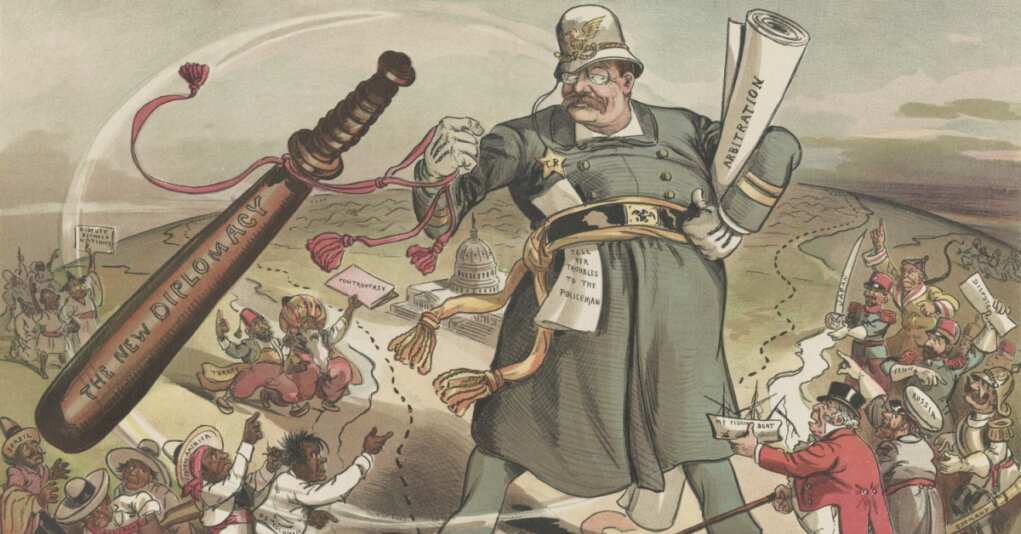The phrase itself is genius, isn’t it? It paints a picture of someone calm, collected, and entirely capable of knocking some sense into a situation if necessary. And that was Roosevelt. He wasn’t a warmonger or a bully, despite what some revisionist historians might tell you. He was a realist. He understood that peace isn’t achieved through weakness or by bowing to every demand from adversaries. Instead, it’s maintained by showing strength and being prepared to use it. That’s not “aggressive”—it’s common sense.
Roosevelt put this philosophy into practice during his presidency in ways that still resonate today. Take the Panama Canal, for instance. It’s one of the greatest engineering marvels in human history, but it wouldn’t have happened without Roosevelt’s willingness to flex a little muscle. He supported Panama’s independence from Colombia and then got to work making the canal a reality, ensuring that America controlled one of the most important trade routes in the world. Was it messy? Sure. Did it make the usual crowd of pacifists and naysayers clutch their pearls? Absolutely. But it worked. The canal revolutionized global trade and cemented America’s position as a dominant world power.
Then there’s the Great White Fleet, Roosevelt’s famous naval display. He sent a fleet of gleaming white battleships on a worldwide tour to demonstrate American naval power. It was the perfect example of “big stick” diplomacy in action. Roosevelt didn’t threaten anyone; he simply showed the world that America was strong, capable, and ready to defend its interests. The message was clear: don’t mess with the United States. And guess what? It worked. Nations took notice, and America’s standing on the global stage grew even stronger.
Now, compare Roosevelt’s approach to what we see today. Modern diplomacy is a lot of things, but “strong” isn’t one of them. Too often, it feels like America’s big stick has been traded for a soggy pool noodle. Leaders seem more interested in appeasing global elites and virtue-signaling than in defending the country’s interests. They’d rather apologize for America’s strength than celebrate it. It’s the kind of thinking that Roosevelt would have laughed at—and then promptly corrected.
Roosevelt understood something timeless: diplomacy without strength is just wishful thinking. He didn’t seek conflict, but he wasn’t afraid of it either. He knew that a strong military and a firm stance were the best deterrents to war. Weakness invites aggression, and Roosevelt wasn’t about to invite anything. His strategy was simple but effective: show you’re prepared to act, and you likely won’t have to. It’s a lesson that seems to have been lost on many of today’s leaders, who seem more interested in negotiating from their knees than standing tall.
The genius of “big stick” diplomacy is that it’s rooted in balance. Roosevelt wasn’t reckless; he was deliberate. He believed in speaking softly first, in giving diplomacy a chance. But if that failed, he made sure America had the power to back up its words. That balance of caution and strength is what made his approach so effective—and it’s what’s sorely missing from much of today’s foreign policy.
Teddy Roosevelt’s legacy is a reminder of what real leadership looks like. It’s decisive, unapologetic, and always focused on the bigger picture. America wasn’t built on apologies or half-measures; it was built on vision, strength, and a willingness to act when necessary. Roosevelt embodied all of that, and his “big stick” philosophy remains as relevant today as it was over a century ago. The only question is whether we’ll learn from it—or keep pretending that weakness and appeasement will somehow lead to peace. Spoiler alert: they won’t.


